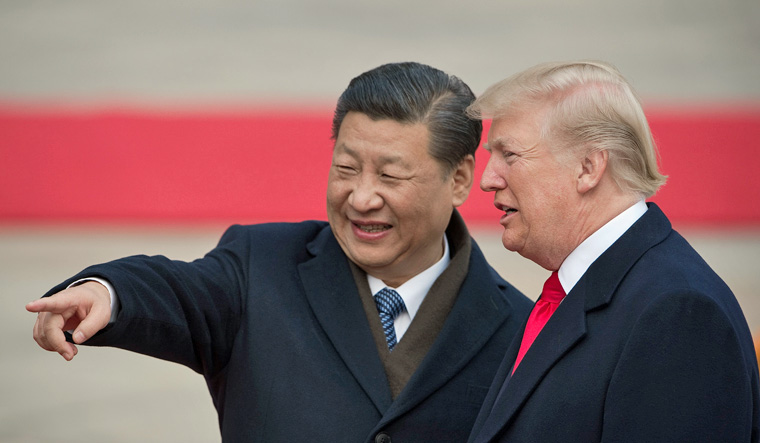China has not fundamentally altered its unfair, unreasonable and market-distorting trade practices, the US said, ahead of a meeting between US President Donald Trump and his Chinese counterpart Xi Jinping.
Trump and Xi are scheduled to meet in Buenos Aires on the sidelines of the G-20 Summit in Argentina on November 30 and December 1.
China and the US are currently locked in an ongoing trade war as each country has introduced tariffs on goods traded between each other.
Trump has promised to fix China's "longtime abuse of the broken international system and unfair practices".
Ahead of the G-20 meeting, the Office of the United States Trade Representative released a report, updating information on its Section 301 investigation of China's acts, policies and practices relating to technology transfer, intellectual property and innovation.
"We completed this update as part of this administration's strengthened monitoring and enforcement effort," US Trade Representative Robert Lighthizer said.
"This update shows that China has not fundamentally altered its unfair, unreasonable, and market-distorting practices that were the subject of the March 2018 report on our Section 301 investigation," he said.
also read
- US responds to Modi's 'ghar mein ghus kar...' remark, Pannun assassination plot
- More potential jurors dismissed as Trump's hush money trial enters second day
- Hush money trial: Prosecutors seek $3,000 fine against Trump over social media posts that ‘violate’ gag order
- Baltimore bridge collapse: FBI opens criminal probe, searches the crippled ship
Running into nearly 50 pages, the report said that the evidence gathered in this update demonstrates China fundamentally has not altered its acts, policies and practices relating to technology transfer, intellectual property and innovation, and "indeed appears" to have taken further unreasonable actions in recent months.
The report reiterates that China uses foreign ownership restrictions, such as joint venture requirements and foreign equity limitations, and various administrative reviews and licensing processes to require or pressure technology transfer from US companies.
Further, China's regime of technology regulations forces US companies seeking to license technologies to Chinese entities to do so on non-market based terms that favour Chinese recipients, it alleged.
The report said that instead of accepting the USTR request for consultations on its 30-1 investigation, China expressed "strong dissatisfaction" with the US and decried the investigation as "irresponsible" and "not objective".
The USTR said China shows no signs of ceasing its policy and practice of conducting and supporting cyber enabled theft and intrusions into the commercial networks of US companies.
This illicit conduct provides the Chinese government with unauthorised access to intellectual property, trade secrets, confidential business information, technical data, negotiating positions and sensitive and proprietary internal business communications, it said.
In recent months, the Department of Justice has indicted a dozen individuals and corporate entities directed by the Chinese government to obtain commercial secrets from 15 companies, predominantly in aerospace and high-technology sectors.
The facts alleged in these indictments reflect China's ongoing determination to obtain trade secrets and other valuable commercial information in support of China's industrial policy, it added.


